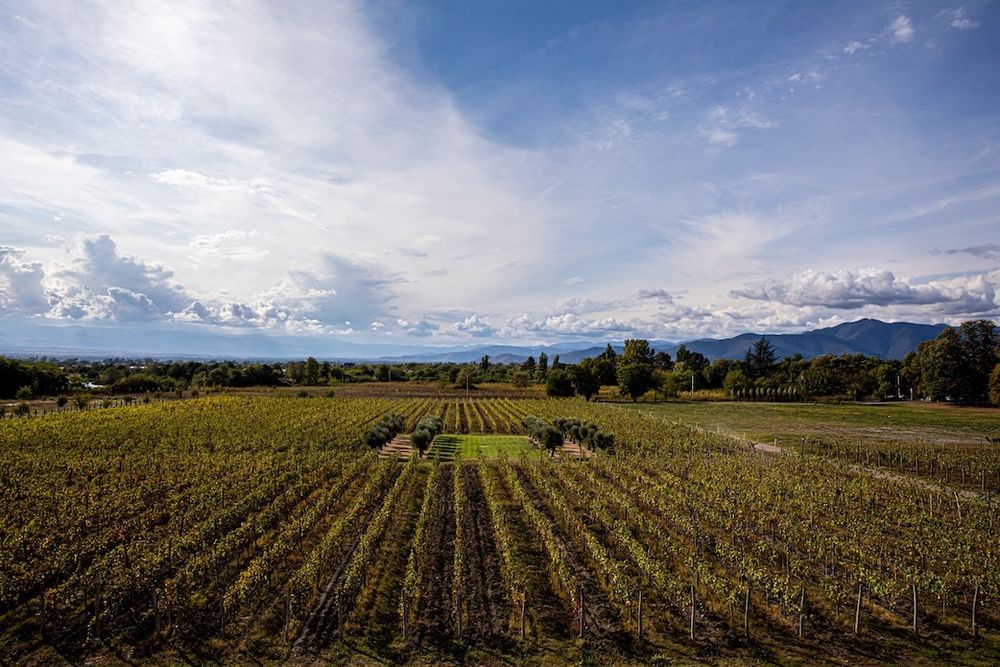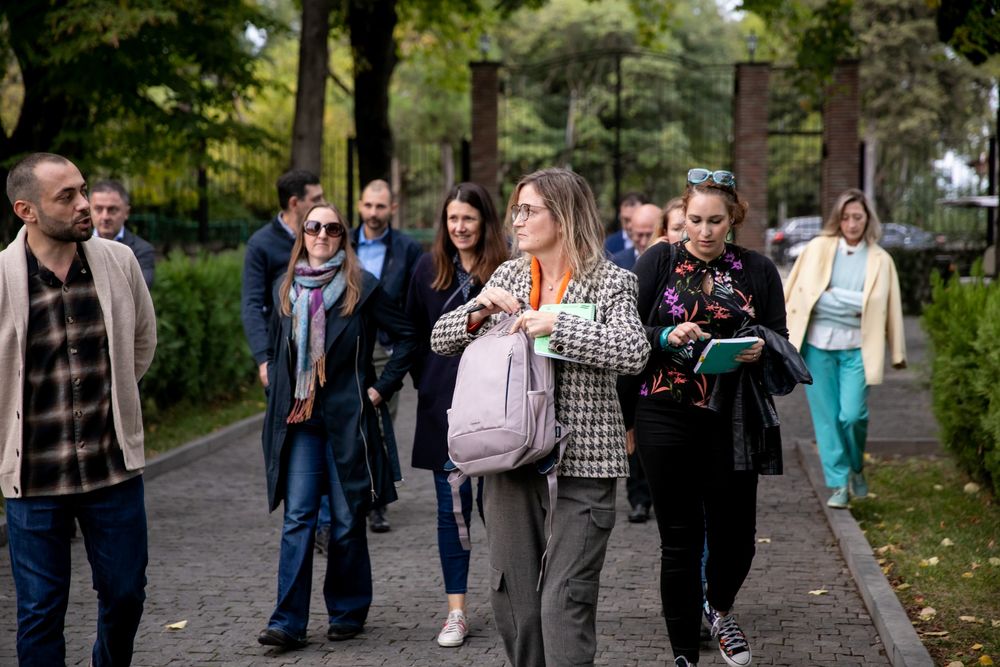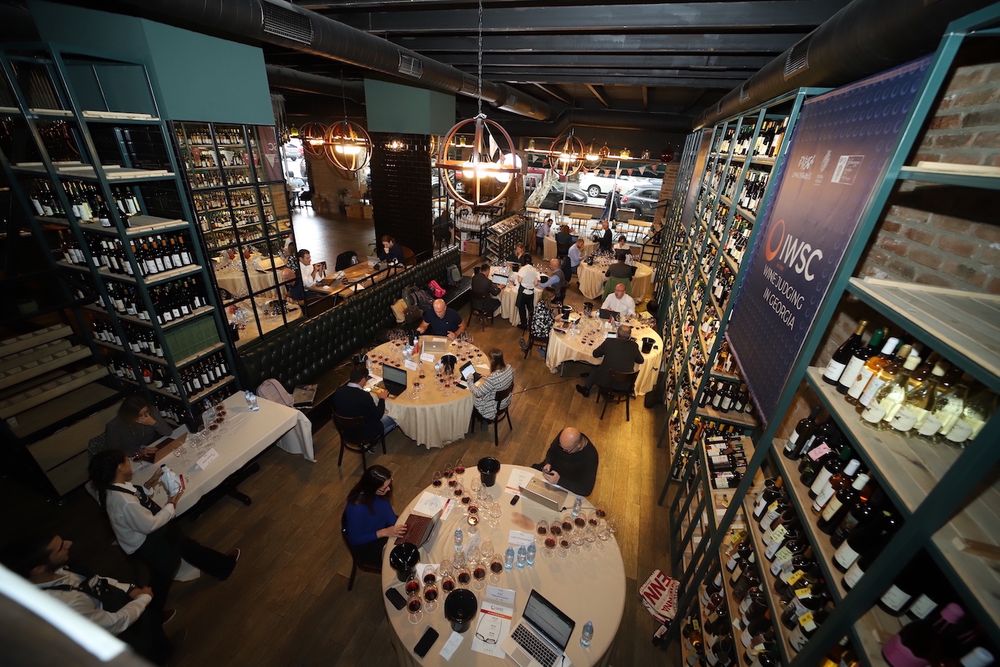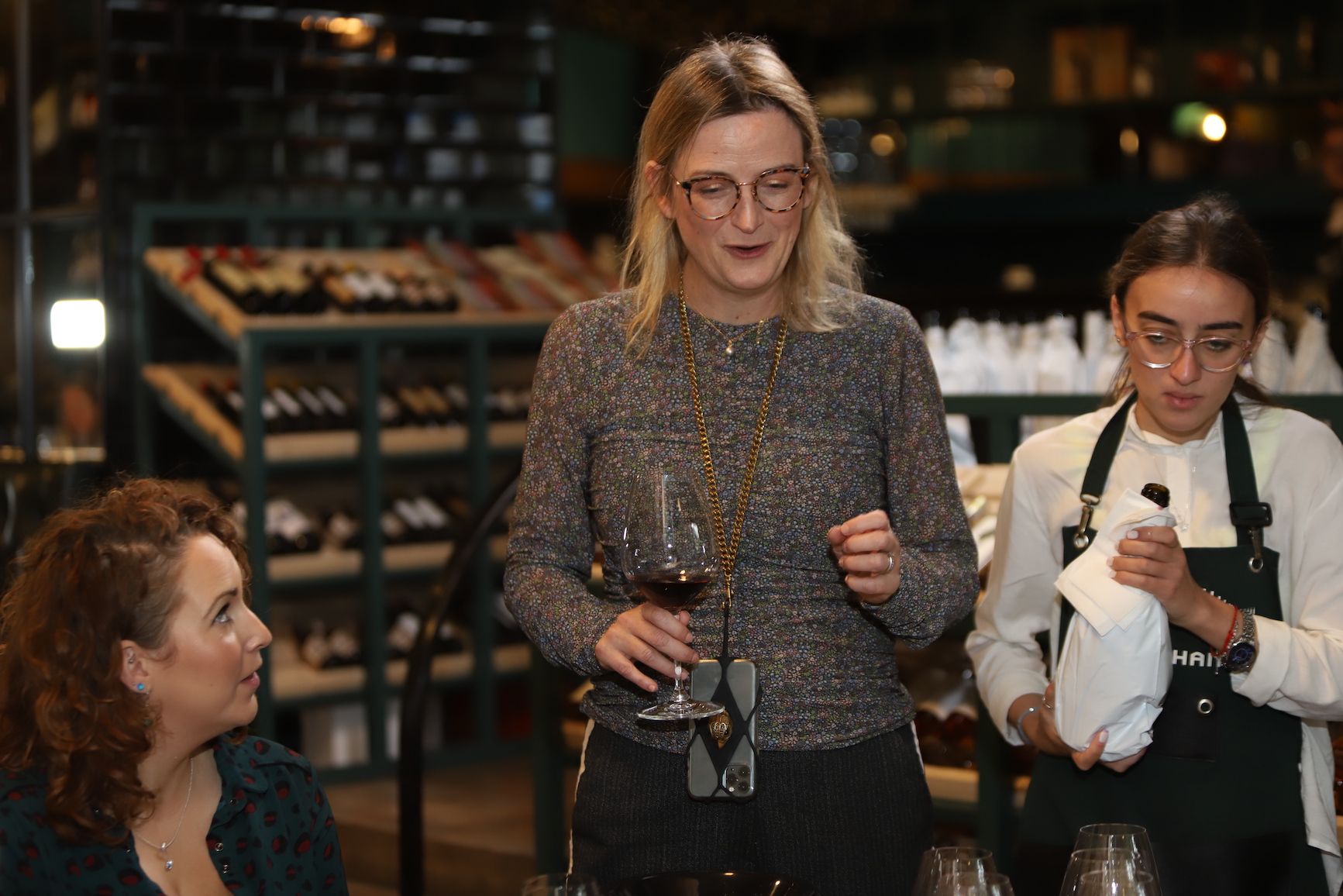“Qvevri wine is estimated to be no more than 10% of production, but this percentage belies its importance and allure,” writes Abbott.

Judging the IWSC in Georgia itself enabled smaller wineries to take part
The number of registered wineries in Georgia increased from around 200 in 2012, to 781 in 2021. What does this mean for Georgia? What wines are they making? And who are they making them for? Many producers of this new wave have come through their first decade and reaching their quality potential. Many established producers have invested in updated wineries (as well as enotourism facilities). It is an exciting time to taste wine in Georgia: a paradox where wine is both ancient and new-born.
Judging Georgian wine in situ
The IWSC judging in Georgia at the end of 2022 gave me (and a crack team of UK buyers and sommeliers) an unrivalled opportunity to taste the fruits of Georgia’s new wine boom. This ‘judging in situ’ is an initiative of Christelle Guibert, CEO of IWSC and an experienced competition judge herself. Judging in situ takes the IWSC team to a region to judge with local experts.
One benefit of in situ judging was apparent before we got to Georgia: the number of entries soared as producers took advantage of the convenience of submitting samples to a local depot. This may seem like a small thing. But for small and medium-sized producers in particular, local drop off makes an international competition more accessible.

Team Georgia included four UK experts
Our UK judges, Salvatore Castano (Friarwood Fine Wines), Megan Clarke (Ellis Wines), Maggie MacPherson (Jeroboams) and Cat Lomax (national retail consultant) were teamed with experienced wine judges from Georgia. Team Georgia included specialists from the National Wine Agency tasting commission, academics and researchers, educators and sommeliers, and winemakers. All had extensive international judging experience. I headed up the judging committee, meaning that I moderate results and stop fights. Not that we had any fights. The Georgian judges were, if anything, more critical in their assessments. They can afford to be more confident in their wines on a world stage.
Georgia has more hectares of white grapes than red, but red wine was the most successful style in our results, winning 32 top (Silver and Gold) medals. Saperavi dominated. The gold-winning Saperavi by Tiko Estate showed why Georgians consider this grape their great hope. Imported into the UK by Astrum Wine Cellars, this vibrant yet sumptuous red is beautifully framed by restrained oak and is a fine wine by any standards. Other expressions of Saperavi also did well with our judges, in qvevri, unoaked and oaked guises.
Our judgements chimed with broader trends: in recent years, the share of red grapes in Georgia’s harvest has been increasing, in response to demand and, in 2021, 32% of Georgia’s grape harvest was red. Other medal-winning reds available in the UK include Shumi’s perfumed Napareuli Iberiuli 2016 (Taste of Georgia), Tbilvino’s succulent and lively Saperavi 2020 (Berkmann), and Dugladze’s explosively fresh and tangy Otskhanuri Sapere Qvevri (Amathus). But there remains a lot of unsigned talent in Georgia looking for a UK importer, as the full list shows.
Amber and white wines
Amber wine is Georgia’s calling card, despite being produced in comparatively small quantities. Qvevri wine is estimated to be no more than 10% of production, but this percentage belies its importance and allure. While conventional wines were awarded the greatest number of medals, Amber Qvevri wines won the highest number of golds. This style, done well, is arresting and distinctive.
The emergence of this ‘Fine Amber’ style (pure, elegant, uncompromisingly pristine) excited our UK judges. Dugladze’s Ranina Kakhuri 2021 emerged as delicious and great value, winning gold and available in the UK from Amathus at an accessible £12.50. Another readily available medal winner is Teliani’s Glekhuri Kisi – a filigree, precise wine – which is imported by Boutinot and retails at £19. Fine amber wine is nuanced. As our Georgian judges insisted, it should not ‘taste of the qvevri’, but of its variety and origin.
I loved seeing the more delicate examples of Qvevri amber wine do well in the IWSC Georgia judging. A lovely, and as yet unimported, example is Bimbili’s Qvevri Tsolikouri 2020, which won Gold. This delicately tawny wine from craggy Racha is a fine example of the traditionally lighter, aromatic styles of Qvevri amber wine from this cool western region.

Judging the red wines: the most successful style in terms of IWSC results
Despite being around 70% of production, Georgian whites have so far not had the impact of their red or amber counterparts in the UK market. One reason for this is that for years the white grape harvest was made into the semi-sweet whites demanded by the Russian market. Their archetype for this style is delicious: Tvishi is a deserving PDO of limited production, produced from the Tsolikouri grape in vineyards at 600m altitude in Racha. Good Tvisihi tingles with floral perfume, tender sweet and airy acidity. Most of the tribute acts are less persuasive.
In recent years the quality of dry white wines from Georgia has soared. These are textured but aromatic white wines, whose perfume is woven into the palate, rather like good Italian whites. We saw Gold and Silver medals for wines from many different varieties, and regions. The Vismino Tsolikouri from GWS was awarded a silver: this producer’s wines will shortly be imported by The Merchant Vintners group, as well as by Townend and Gusto Wines. Our judges awarded Silver to the vibrant, blossomy “Gvino Rachulad” (Racha blend) by Ancient Valley. That wine has just landed with Naked Wines and is retailing at £9.99. Watch this space for the new wave of Georgian dry whites.
Read the IWSC’s Georgian wine round-up, including details of the 16 gold medals here and view all medal-winning Georgian wines from this ‘in-situ’ judging here.
Article published in partnership with the IWSC.






























